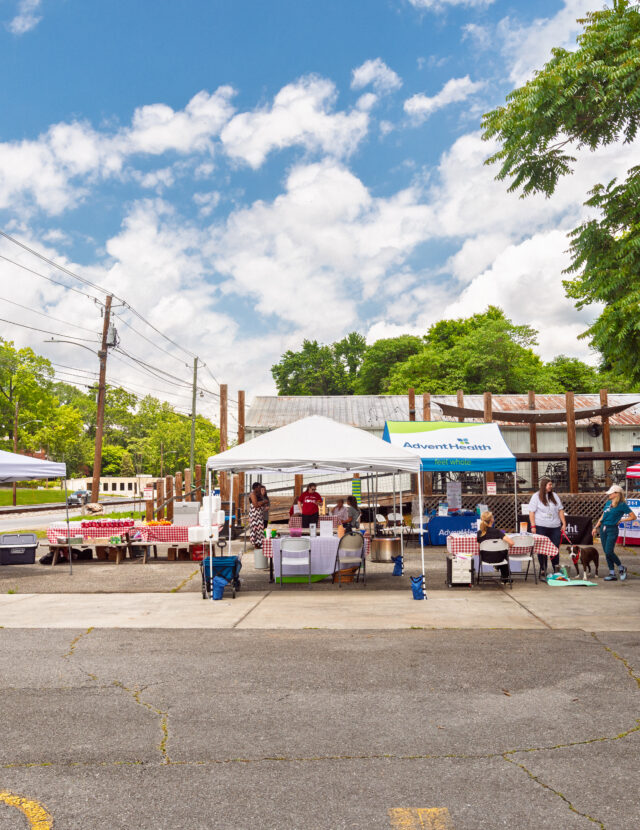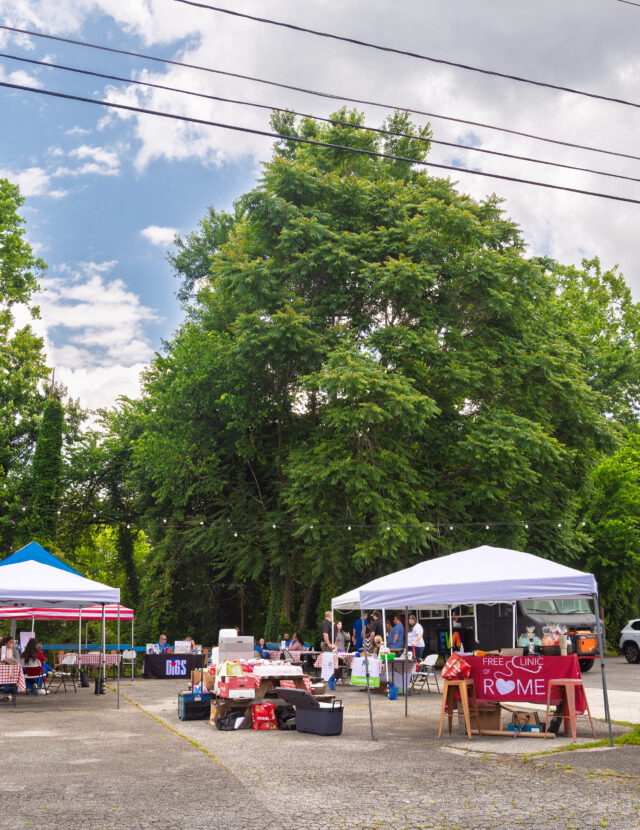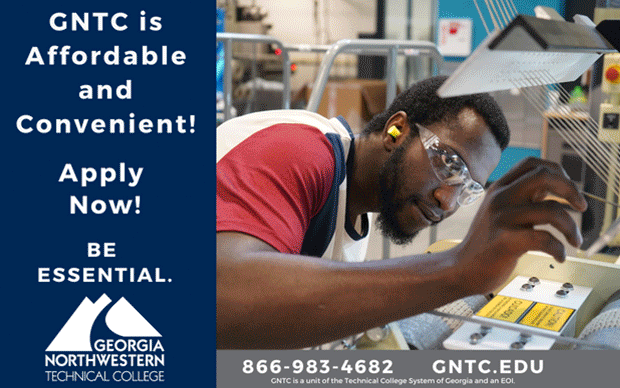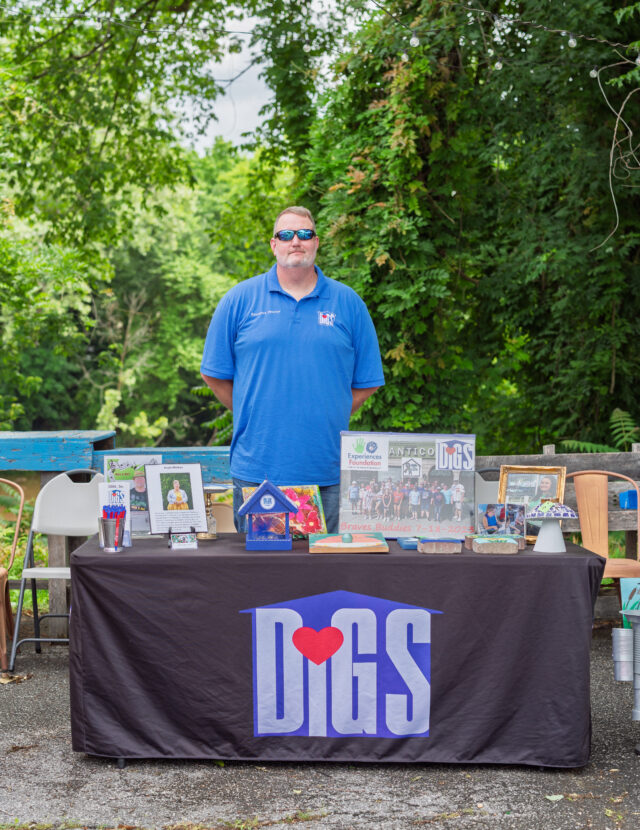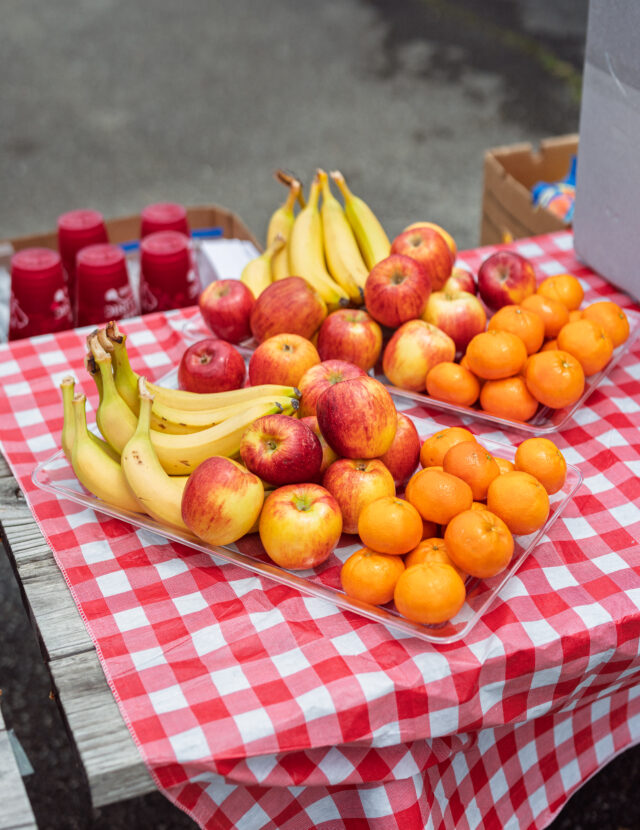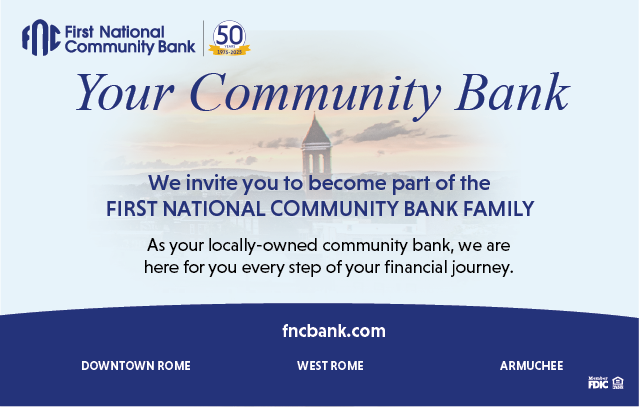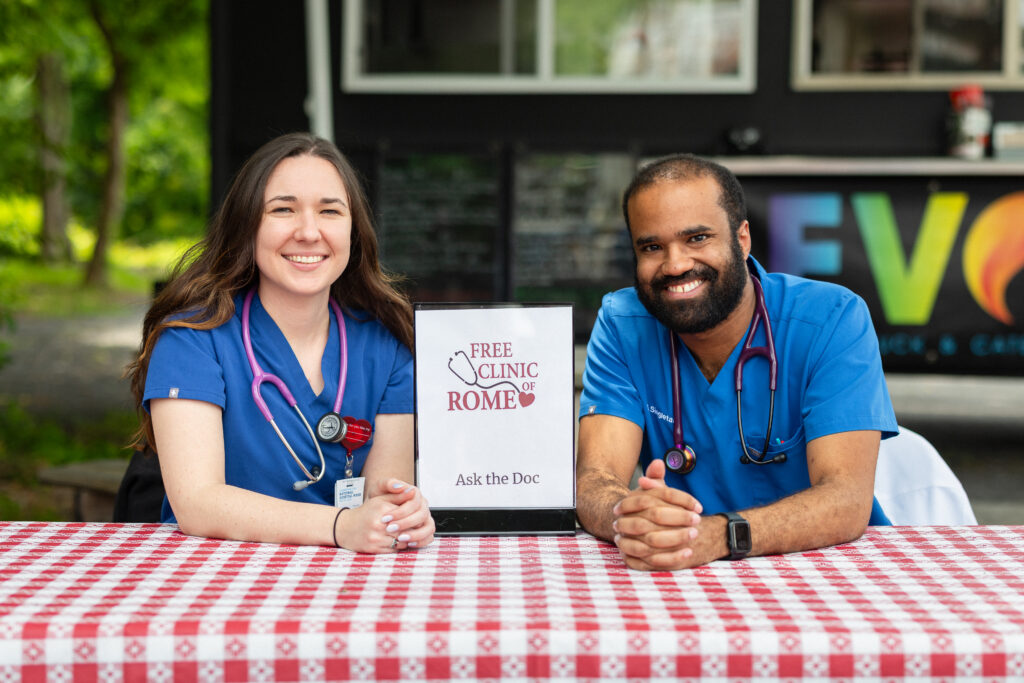
Photos Andy Calvert
Day-to-day life can make it hard to prioritize yourself. Juggling work and personal life is a full-time job, and often, taking care of yourself comes second to ensuring everything gets done. Between commuting, finishing the forty-hour work week, and setting aside time to spend with loved ones, you may not have the time to think about your own wellness. Constant tension in your back is brushed aside as a necessary consequence of the job. Perpetual grogginess just becomes a part of your day that you learn to combat with coffee. Balanced meals aren’t as important as simply making sure that you do eat something.
For over 14% of Rome’s citizens, a lack of health insurance only makes it harder to prioritize personal health. Proper access to medical care is a peace of mind that everyone deserves, though, and the members of the Free Clinic of Rome want their neighbors to have that peace of mind.
Health and wellness often seem at odds with our day-to-day lives, but the staff of the Free Clinic of Rome has designed their practice to meet the community where they are. For over twenty years, their goal has been to provide uninsured citizens of Floyd, Polk, and Chattooga counties with “quality primary healthcare,” says Renee Blackburn, Executive Director.
The clinic’s staff seeks the health and wellness of their community, one neighbor to another. And if the diagnosis calls for long-term treatment, they provide their neighbors with the medicine and resources they need.
Originally, the clinic was established by physicians volunteering at four of Rome’s local church soup kitchens. They wanted to help people, and this naturally began with feeding them. However, the volunteers also noticed that many of the same people they were feeding did not have their other needs met. “People in need were actually getting fed and there were two shelters in Rome, but there was no one that really was addressing the fact that these people had medical needs as well, and there was no access or no ability for them to answer that or provide that,” says Renee.
So the volunteers began working with the local Salvation Army to start a free healthcare clinic. It started small: the clinic was only open one day a month, and they had few supplies to work with. But they were reaching their community in the way they had hoped they would. The volunteers decided they needed their own space to offer their services on a more consistent basis, and by 2003, they had established the Free Clinic of Rome.
As of now, the clinic has been providing uninsured citizens with healthcare for over twenty years. Their work as a non-profit is based on generous donations from their community, along with resources from fellow non-profits. Renee says, “Every dollar that we’ve spent had a return on investment of $11.60,” amounting to “3.2 million in healthcare” last year.
Often, the Free Clinic of Rome finds that its patients have been struggling with chronic illnesses for years. “What happens is crisis and bad diagnosis sneak up on you,” Renee says. “If you didn’t know your A1C was climbing up or you didn’t know that your blood pressure was high and slowly getting higher because you felt fine at the time, those are actually the people that when they get in their 40s and 50s wind up with cardiac issues or strokes or become insulin dependent diabetics, start losing functioning of kidneys or vision.”

To address these illnesses earlier on, the clinic held a health fair on May 14th, designed for members of the community to talk one-on-one with medical volunteers and professionals from a variety of fields about any concerns they have.
The primary focus of this year’s health fair was “hospitality and gig workers or service-industry workers.” Although service-industry workers maintain a flexibility and resolve that is vital to help their community where possible, their lines of work don’t typically come with the benefits of a full-time job, one of those being health insurance.
The clinic’s staff have noticed that patients with chronic illnesses later in life often come from these backgrounds. By reaching out to service-industry workers when they’re in their 20s and 30s, they hope to treat them before their illnesses become chronic.
“We’re seeing people here on the back end of [not having insurance] and thought: You know what? We need to switch our focus and see if we can go ahead and reach out to the people who are on the front end of not having insurance, and not having jobs that provide insurance, and feel good and healthy, but in actuality may have hypertension or may have an A1C,” says Renee. “Let’s reach out to them and say: I know you may be feeling good, but you’re not insured, so I know you’re not going to see the doctor. Can we help you?”
Physicians at the health fair offered to perform check-ups and to discuss medical care options with members of the community. Giving the public the chance to talk with these physicians one-on-one allows them to receive the individualized care they deserve and prepares the clinic with opportunities to “do maintenance and control instead of crisis intervention when a crisis gets here,” says Renee.
The clinic does not just intend to diagnose patients, though. They want to ensure that each person under their care receives the treatment they need, even if it must be outsourced. While the clinic is best equipped to treat chronic illnesses, such as diabetes and hypertension, it collaborates with a plethora of other non-profits to aid their patients. Diagnoses mean little without tangible methods of treatment, and the clinic strives to find methods that suit each of its patients.
Beyond treating patients, Renee believes that the clinic should support the community in its entirety: “The patient is just one aspect of who actually benefits from the Free Clinic of Rome.”
Key to the Free Clinic of Rome’s success is its group of volunteers. Medical students and retired physicians come together to support the community each year, many balancing college courses and personal life in addition to their volunteering. And their tireless efforts are well-rewarded.
Volunteering gives them equal opportunities to uplift their neighbors and to uplift themselves. Renee says, “It helps tremendously students who want to go into the healthcare field. It helps tremendously physicians who want to retire, but they still love taking care of people.”
Working in the clinic allows aspiring and actively studying medical students to gain experience in the field. “A lot of people that want to go into these areas have never had the opportunity to put their hand on another patient with a stethoscope or to… see what it’s like to actually help take care of someone or assess somebody and their blood pressure, their blood sugar, put a stethoscope on their heart, listen to their lungs, and yet they’re choosing this as a career. And it helps tremendously to get that hands-on experience.”
While volunteering, students are acclimating to the medical workspace and gaining a familiarity they can’t get from the classroom alone. Renee says that the competition that comes with medical school and careers often calls for prior experience, which is what she hopes to give the students who volunteer at the clinic.
Students can also use their time at the clinic to determine where their passions truly lie, even if they ultimately extend outside the realm of healthcare. Renee notes how important experiences such as these can be for students, as they can give them insights into the medical field that they can’t get from their classes. Rather, practicing lets them know if being a physician suits them.
For volunteers who have retired from the medical field, the clinic is a space to continue their passion in a capacity that complements their lives. The workload of a full-time physician is fulfilling, but it is strenuous. The clinic provides an alternative to the sometimes seventy-hour work weeks, allowing volunteers to create a balance between their home and work lives.
Rooted in their beginnings at the church soup kitchens, the Free Clinic of Rome embodies neighborly love. It is an “orchestration of the community,” where everyone’s efforts harmonize to create something greater than themselves. Their faith-based origins guide how they interact with the community today: “You are to love your neighbor as yourself… just because your neighbor is backing out of their driveway five days a week and going to work somewhere forty hours a week, that doesn’t mean that they have insurance,” Renee says. “We were founded by neighbors who love to help their neighbors; we’re funded by neighbors who love helping out their neighbors. And that’s the way we have continued to be.”
The clinic is always accepting new patients through phone calls (706-234-1331). Volunteers will usually be working with patients, but if prospective patients express interest in becoming a patient over voicemail, volunteers will reach out with more information.



